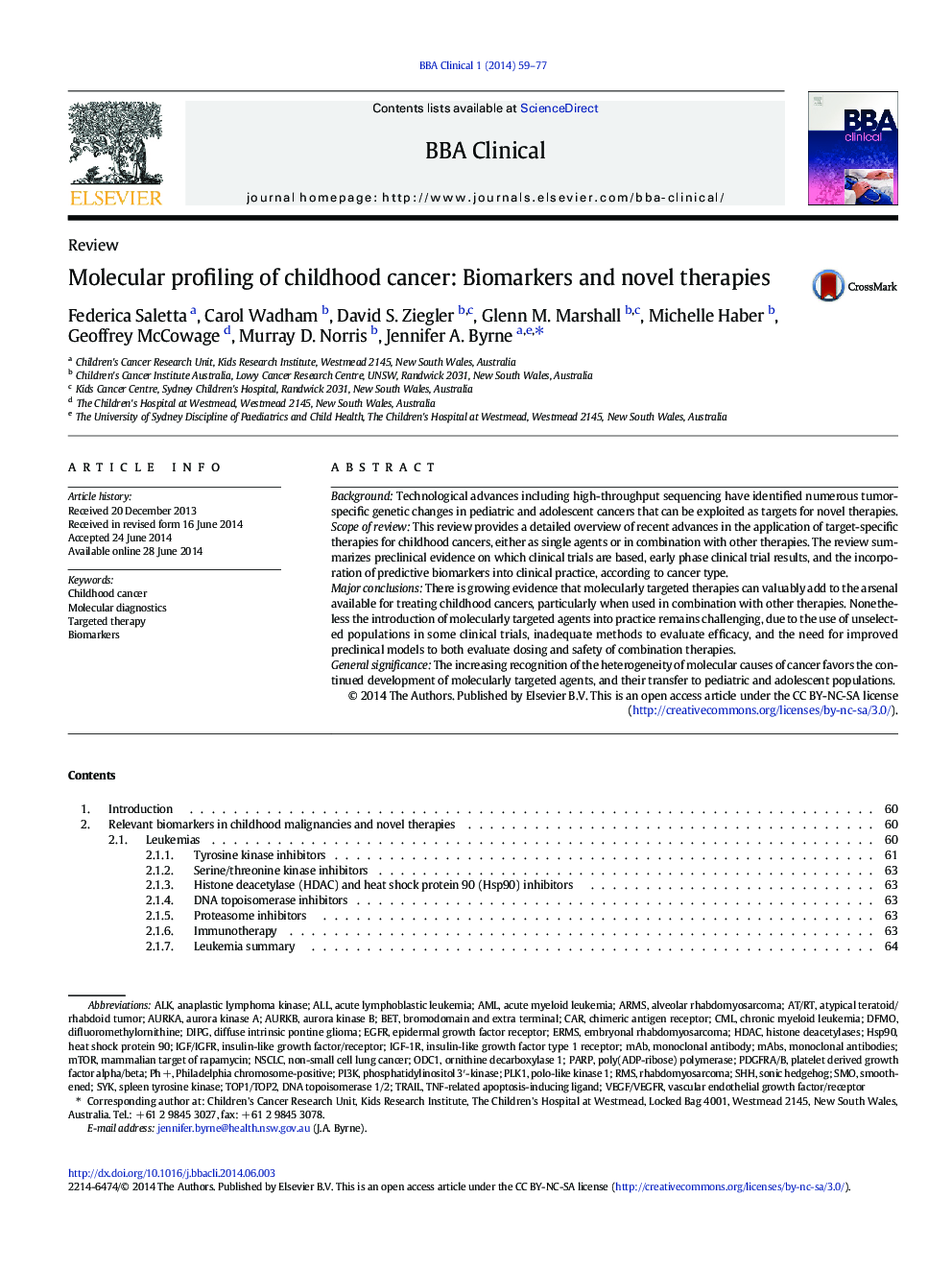| Article ID | Journal | Published Year | Pages | File Type |
|---|---|---|---|---|
| 2773201 | BBA Clinical | 2014 | 19 Pages |
•Increasing numbers of targeted therapies are being tested for pediatric cancers.•Molecularly targeted therapies are proving most effective in combination regimes.•More rigorous preclinical testing should further improve clinical trial results.
BackgroundTechnological advances including high-throughput sequencing have identified numerous tumor-specific genetic changes in pediatric and adolescent cancers that can be exploited as targets for novel therapies.Scope of reviewThis review provides a detailed overview of recent advances in the application of target-specific therapies for childhood cancers, either as single agents or in combination with other therapies. The review summarizes preclinical evidence on which clinical trials are based, early phase clinical trial results, and the incorporation of predictive biomarkers into clinical practice, according to cancer type.Major conclusionsThere is growing evidence that molecularly targeted therapies can valuably add to the arsenal available for treating childhood cancers, particularly when used in combination with other therapies. Nonetheless the introduction of molecularly targeted agents into practice remains challenging, due to the use of unselected populations in some clinical trials, inadequate methods to evaluate efficacy, and the need for improved preclinical models to both evaluate dosing and safety of combination therapies.General significanceThe increasing recognition of the heterogeneity of molecular causes of cancer favors the continued development of molecularly targeted agents, and their transfer to pediatric and adolescent populations.
